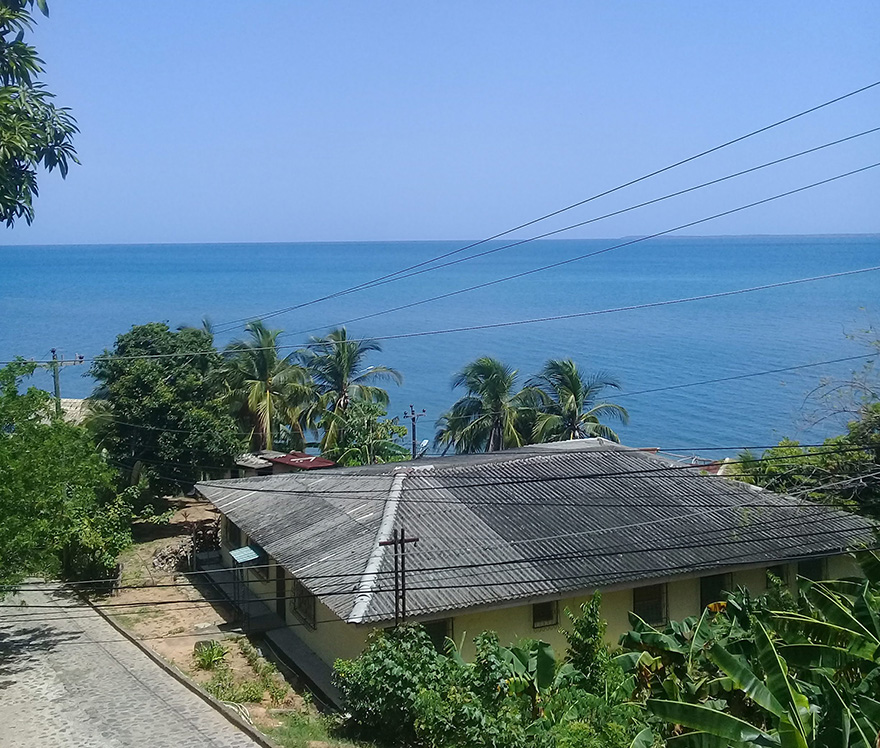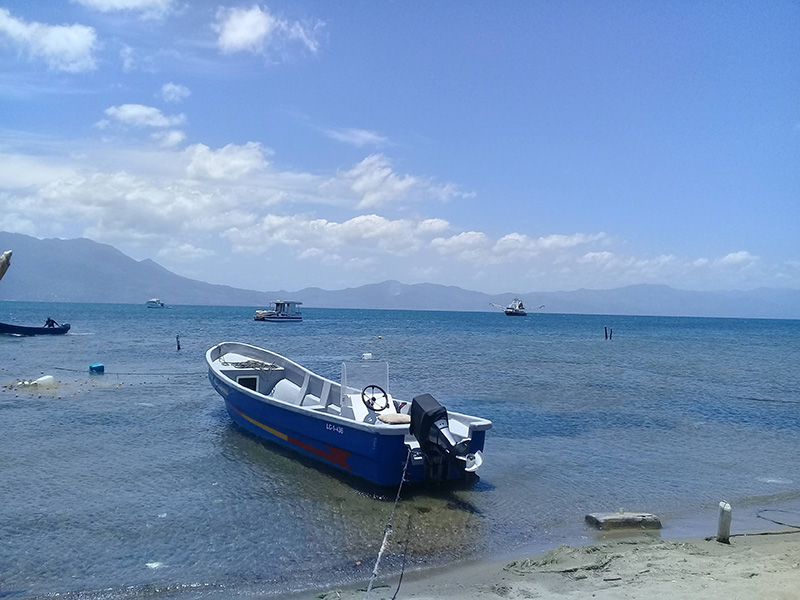
Trujillo’s Coral Reefs
The coral reefs in Trujillo Bay are part of the larger Mesoamerican Reef system, which extends nearly 800 miles across the coast of Mexico, Belize, Guatemala, and Honduras. On the eastern Caribbean coast of Honduras, Trujillo Bay supports numerous small fishing villages that depend heavily on their marine resources.
But like in many places throughout the world, Trujillo Bay’s coral reefs suffer from poor water quality and overfishing. Our research has shown that fish in Trujillo Bay are biologically connected to fish populations throughout the Honduran Caribbean and possibly the rest of the Mesoamerican Reef region, and that the fish travel between destinations, so what happens to fish in Trujillo affects other parts of the coastline hundreds of miles away. Because of that connection, managing fish populations in Trujillo Bay is vital to protecting coral reefs and supporting communities across the entire Honduran North coast.
Many local community members recognize the need to protect their coral reefs. They are strong and willing partners and are already spearheading much-needed conservation practices.
Our Work
Our goal is to build a lasting management framework in Trujillo Bay by bringing together different entities and stakeholders to protect coral reefs. Our first step was to create a local technical committee composed of community members, government officials, and partner organizations.
We now support the committee in the design and implementation of a protected area management plan to preserve Trujillo’s natural resources, and ensure they have the information they need to make informed decisions. Our community scientist in Trujillo meets with fishers each morning to gather much-needed data that help inform the plan and provide a better understanding of what’s happening to local fisheries. And our socioeconomic assessments provide a better understanding of the community and their dependencies on the nearshore coral reefs.
No one knows the local reefs better than the local fishers, and their knowledge is crucial to helping us build lasting conservation approaches. We help document that knowledge to make sure it shapes conservation strategies and is accessible to policymakers and regulators.

Get Involved
If you’re a resident of Trujillo, reach out to the technical committee to find more ways to get involved, and if you’re a fisher, help share information with our community scientist when you arrive back from your catch.
If you’re not a resident of Trujillo, you can still support Trujillo’s coral reefs. Help share the resources below to spread the word about Trujillo’s fisheries and the importance of sustainable tourism in Honduras.
Recent News
Local Scientists Find New Coral Reefs in Trujillo, Honduras. Here’s What That Could Mean for Mesoamerica
Local scientists from CORAL and the Healthy Reefs Initiative (HRI) made an exciting, new discovery during this year’s coral reef monitoring in Trujillo, Honduras. With the help of nearby fishers, they found multiple sites of new coral reefs that have not previously been monitored or studied by the local scientific community. For a while, local… Continue Reading →
Local Honduran Committee Takes Action to Protect Coastal Marine Ecosystems
At CORAL, we proudly work side-by-side with local partners that are dedicated to protecting coastal areas, mitigating direct threats to coral reefs, and serving the local community. By ensuring local communities maintain ownership over their own resources, we build conservation solutions that survive the test of time. This is especially true in Honduras, where we… Continue Reading →
With Healthy Fisheries, Everyone Wins
Santos Banegas has been fishing off the coast of Puerto Castilla, Honduras, for the last 35 years. At the start of his fishing career, he remembers routinely catching 300 to 500 pounds of fish a day, which meant he could easily feed and support his family. Today, he’s lucky if he catches 30 to 40… Continue Reading →
Resources
Catalog of Fish Species in Trujillo and Laguna de Guaimoreto, Honduras
Local fishers held a wealth of knowledge of the various fish species of the region, but that information wasn’t documented anywhere. Now, by partnering with the fishers to create detailed fish catalogs for the region, CORAL has helped preserve this vast local expertise and make it more accessible to the general public.
Situational Diagnosis Of Artisanal Fishing In Trujillo and Santa Fe, Honduras
Situational diagnoses allow us to better understand local fisheries, determine future research needs, and generate guidelines for the management and conservation of fishery resources. This study showcases a situational diagnosis of local fisheries in Trujillo and the Laguna de Guaimoreto in Honduras.
Good Environmental Practices: Diving and Snorkeling
Coral reefs are among the world’s most spectacular ecosystems. As coral reefs face an increasing number of threats, coral reef visitors can play an important role in helping protect these vulnerable habitats. Follow these simple guidelines to become a “coral friendly” diver/snorkeler.
Fisheries Monitoring Protocol
In this Spanish-language paper, we seek to describe fisheries monitoring programs and detail the necessary procedures to carry them out. Our hope is that this can serve as a basis for the developing a national monitoring system for fisheries.


